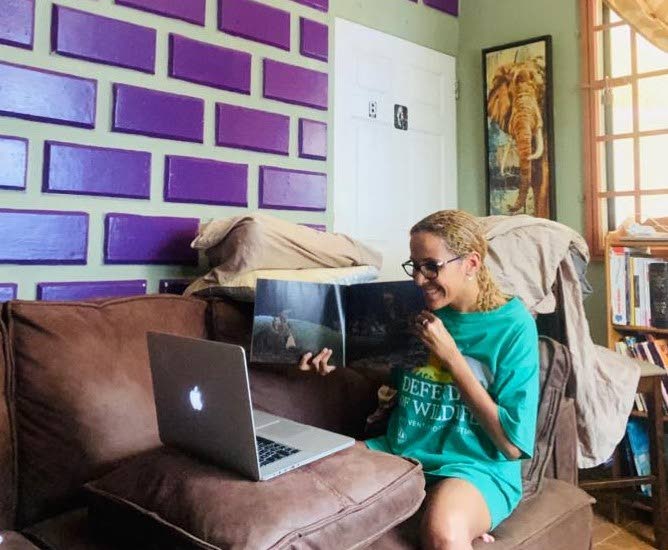Stress after returning from overseas

As countries around the world took drastic measures to close borders in a desperate attempt to shut out covid19, many Trinidadians living abroad struggled to return home. Ijanaya Jacob-Brown, who lives in Africa, tells the story of her journey home and her experiences in self-quarantine in a four-part series. The initial story was published in the last Sunday Newsday.The following is Part 2 of a four-part series
Self-Quarantine Day 1
Tired and stunned, those of us lucky enough to make the 6 pm flight from Miami to Trinidad on March 22, felt thankful we had made it home. We lined up at Piarco and had our temperature taken, as we had everywhere in the world I passed through. We were told we have to self-quarantine for 14 days.
The form says, “You are not allowed to leave your home during this period.” It warns that failure to comply with quarantine directions can lead on conviction to a fine and imprisonment if you are convicted.
We were told a nurse would call us and check in on us every day, but this is day five of my quarantine and no one has called to see if I have developed symptoms. That doesn’t make me feel very confident. I am a responsible person, but what about the person who thinks, “Well, no one is checking on me so I can just leave the house?”
I felt relieved I could quarantine at home, but I felt worried about exposing my mother and brother, and also about coping in a confined space for 14 days and relying on people for everything. In four days, I totally lost my independence.
When I got home, I just wanted to shower and sleep. I kept thinking, “Thank God it’s over.” Throughout the time I was travelling, I wondered, how could all of this happen so fast? How could people be trapped in countries with nowhere to go and can’t get home?
It felt like quicksand. As soon as you felt you could rise above it, you sank back down. But now I’m thinking about surviving quarantine. I’m worried about having covid19. Every little ache or pain I get; every time I cough or get a feeling of anxiety in my chest – which I tend to get often – I wonder if it’s the beginning of the coronavirus.
On my first night in quarantine, I collapsed into sleep. The next day, it was time to process the fact that I couldn’t get back into Sudan, a country where I lived and worked in for two years. I would never see my colleagues again. I had to say goodbye to the guards in my building by Whatsapp.
The first day I kept thinking: What does life mean now? I wondered about my new job in August in Europe.
A friend told me that her school told her when she arrives in China in July, she will have to do 14 days of quarantine again. So this is not something that is going away soon.
I’m sitting here in a room and worried about friends stuck in Sudan. There are protests there every day. Sudan is not a safe place. We have lived through the airport being closed several times, coups, a massacre and protests. It is awful when you feel closed off from the world.
I worry every minute about inadvertently exposing my family to covid19 even though I don’t come out of my room, which has its own bathroom, except for a five-minute walk outside every day.
I called the Ministry of Health and asked if the other people in the house should be quarantined too. My mother and brother had already decided they would not leave the house while I was in self-quarantine, because they didn’t want to risk exposing anyone.
Much to my mother’s horror, the person at the Ministry of Health said they could leave the house. I thought that was strange. If I’m high-risk, I feel no one who is contact with me should be in contact with anyone on the outside.
So I’m sitting in a room, by myself on a couch and thinking about everything I lost in a matter of a few days: everything I knew; everything I owned; everything I was used to vanished in a flash. My life as I knew it is gone. My job has not made it official we’re not coming back to Sudan, but we all know this is true.
I don’t get to say goodbye to the children, and that makes me sad. I want to give them closure, and I want them to remember me leaving on a positive note. You don’t want to just be the teacher who disappeared.
Part of being an international teacher is shaping your legacy of how you will be remembered in the world, and not being in control of that narrative makes me sad.
I am thinking of ways to put my life back together. I returned to the country where I was born with nothing – not even a suitcase. At some point, I will have to start all over.


Comments
"Stress after returning from overseas"